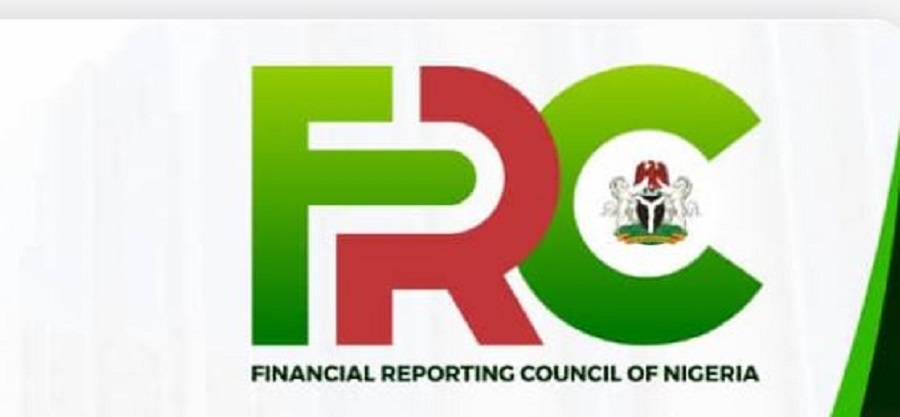E-Financial
Unclaimed Dividend: SEC Reads Riot Act to Companies, Registrars

Securities and Exchange Commission (SEC) has warned quoted companies and capital market registrars to desist from selective payments and distribution of dividends.

Mr Lamido Yuguda, director-general of SEC, stated this at the 10th annual conference of the Institute of Capital Market Registrar’s (ICMR) with the theme ‘Reinventing the Nigerian Capital Market for Growth: The Digital Technology Approach’, held in Lagos Saturday.
Yuguda who said that some registrars are unwilling to release the unclaimed dividends in their custody and have employed several antics to frustrate shareholders from enjoying the benefits of the E-DMMS platform, urged the ICMR to encourage its’ members to uphold the Code of Ethics of the profession and as contained in the Rules and regulations of the Commission.
He said “Capital market operators, have a duty to uphold the integrity of the capital market to foster investor confidence as Investors are the greatest assets any capital market has. The Commission would therefore not hesitate to sanction any erring operator in relation to unclaimed dividend or any other issue.”
The SEC DG also stressed the need for optimal regulations of digital technology in the capital market to forestall likely disruptions that could threaten investors’ confidence.
According to him, as much as digital technology is expedient for the growth of the capital market, disruptions could threaten investors’ confidence in the market if digital technology is left unregulated.
Yuguda said the Commission had recognised that if the application of digital technology to financial market practices are not properly regulated, it could lead to outcomes that would threaten investor confidence in our market.
Yuguda noted that in consistence with the position of IOSCO, the commission has been sensitive to the regulatory challenges of a changing technological environment and has sought to balance the benefits of encouraging innovation and the use of new technologies against the need to protect investors and maintain orderly markets.
Yuguda, while noting that the Commission’s priorities are to ensure investor trust and confidence as well as fair, orderly, transparent, and efficient markets, said the Commission had issued rules to regulate several technology-driven activities in the capital market such as crowdfunding, robo-advisory and digital sub-broking.
“To actualise this, we have adopted a three-pronged approach to regulating Digital innovation, which is safety, market deepening and provision of a solution to problems,” he said.
He, however, assured that SEC would continue to ensure that intermediaries harness digital technology in such a way to better serve the needs of investors in all aspects of the capital market and also continue to engage with all stakeholders on new developments in the digital technology space.
“I believe that we all have a common interest in seeing these opportunities harvested, but also in mitigating the risks so that we all can reap the benefits,” he said.
Earlier while in his welcome address, Mr Seyi Owuturo, president/ chairman of Council, ICMR, said the Institute believed that the deliberation was auspicious at a time when the COVID-19 crisis had brought digital transformation in the way companies in all sectors and regions do business.
Owoturo thus said the Institute expects digital technology approach to drive positive outcomes in streamlining processes, harnessing data and shaping entirely new ways of doing business.
E-Financial
FG Halts FRC’s Turnover-Based Levy, Introduces N25m Cap

Federal government has halted the implementation of the controversial turnover-based annual dues imposed by the Financial Reporting Council (FRC) and has introduced a N25 million cap for Public Interest Entities (PIEs) in the private sector.

This was disclosed on Sunday by Dr Jumoke Oduwole, minister Federal Ministry of Industry, Trade and Investment.
“To provide immediate clarity, the Minister has directed the Financial Reporting Council (FRC) to apply an interim cap on annual dues payable by private sector PIEs at N25m, aligned with the cap already in place for publicly listed entities under the legislation.
“This directive creates a stable environment for compliance for affected companies in the short term and reflects the Ministry’s commitment to prioritizing transparency, investor confidence, and regulatory equity while allowing the Ministry of Justice to appropriately determine the longer-term path for seeking legislative amendments on behalf of the Federal Government, if required,” the ministry announced.
The decision followed sustained pressure and advocacy from leading industry groups, including the Oil Producers Trade Section (OPTS), the Association of Licensed Telecommunications Operators of Nigeria (ALTON), and the Nigeria Employers’ Consultative Association (NECA), who expressed serious concerns about the Financial Reporting Council (Amendment) Act 2023.
At the heart of the outcry was the reclassification of large private companies as PIEs, which subjected them to annual dues ranging from 0.02 per cent to 0.05 per cent of turnover—without any upper limit.
This was in stark contrast to the fixed ₦25m levy applied to publicly listed companies, regardless of their size or market value.
Responding to these concerns, the Federal Ministry of Industry, Trade and Investment convened a high-level stakeholder engagement in March 2025, aimed at addressing the implications of the amended Act and preserving a fair regulatory environment.
Following a formal public consultation held on March 26, 2025, the Ministry announced an administrative pause on the implementation of the turnover-based levies.
The ministry explained, “In line with this commitment, the Technical Working Group coordinated by the Ministry, comprising NECA, MAN, ALTON, NACCIMA, PFPTRC, CAC, and SEC, along with a robust team from the FRCN, met six times over a three-week period for stakeholder consultations.”
The ministry narrated that after six rounds of stakeholder meetings over a three-week period, the Working Group submitted a detailed report to the Minister of Industry, Trade and Investment on April 17, 2025.
The Minister subsequently briefed President Bola Tinubu, highlighting the disproportionate burden the policy placed on affected companies and its potential to harm investor confidence.
It added, “These engagements culminated in a report assessing the implications of Section 33D of the FRC (Amendment) Act 2023 submitted to the Honourable Minister on April 17, 2025, the Minister of industry trade and investment provided a detailed briefing to Mr. President on the critical concerns raised by organized private sector stakeholders prior to the implementation of the administrative pause and made recommendations based on the submitted report and affirms that the administrative pause will be maintained in the mid- to long-term, pending a broader legislative review.”
E-Financial
GTBank to Close Branches Early Today for Half-Year Audit

Guaranty Trust Bank Ltd. (GTBank) will close all its branches across Nigeria earlier than usual on today (Monday, June 30), according to email sent to customers at the weekend.

According to the message, the early closure allows for the bank’s scheduled half-year audit activities.
The statement read, “Please be informed that our branches nationwide will close to customers early on Monday, June 30, 2025, for our half-year audit.”
It also specified different closure times for locations based on geographical locations in the country.
“Kindly note the early closure time below: Upcountry Branches – 2.00 pm; Lagos Branches – 3.00 pm,” the bank stated.
GTBank advised customers to use its digital banking channels for transactions during the period of early closure.
GTBank assured that its branches will resume operations at regular business hours on Tuesday, July 1.
It appreciated customers for their understanding and continued patronage during the audit period.
E-Financial
Shareholders Oppose Transfer of Unclaimed Dividend to CBN

Shareholders have condemned the recent decision by the National Assembly to pass legislation requiring the transfer of all unclaimed dividends from company registrars to accounts managed by the Securities and Exchange Commission (SEC), as opened by the Debt Management Office at the Central Bank of Nigeria (CBN).

In a statement issued under the aegis of the Independent Shareholders Association of Nigeria (ISAN), shareholders strongly rejected the position of the National Assembly, describing the move as an unconstitutional transfer of unclaimed dividends to the CBN.
They noted that this action constitutes a gross violation of shareholders’ rights, a betrayal of investor trust, and a dangerous precedent that threatens the sanctity of private property and the integrity of the capital market.
Giving reasons for their rejection, the shareholders emphasized that unclaimed dividends are not government revenue; they remain the legal property of individual investors and their heirs, regardless of the time elapsed.
They argued that the attempt to centralize and manage these funds under SEC control amounts to indirect expropriation.
They added that this law would erode investor confidence in Nigeria’s capital markets, as both local and international investors require assurance that their returns will be protected—not seized under the guise of state policy.
The statement, jointly signed by Moses Igbrude and Mr. Eke Chibuzor, national coordinator and general secretary respectively of ISAN, criticized the passage of the law without broad consultations with shareholders, registrars, and capital market stakeholders, calling it a troubling disregard for participatory governance and due process.
“There are no clear frameworks for how the SEC intends to manage these funds, what returns will be offered to rightful owners, or how and when claims will be honored. This is a recipe for bureaucratic mismanagement and corruption,” the statement read. It added that instead of simplifying the process for claiming unclaimed dividends, the law introduces additional layers of opacity and complexity—especially for rural and aging investors who already face significant challenges.
Shareholders, therefore, demanded the immediate suspension of the law’s implementation and urged President Bola Ahmed Tinubu not to assent to the bill. If already signed, they called for its immediate suspension pending judicial review.
They also noted that the association is mobilizing legal resources to challenge the law in court, describing it as unconstitutional, unjust, and economically harmful.
Instead, they proposed that efforts should focus on reforming the claims process at the registrar level through technology, public education, and standardization—not through centralization and state appropriation.
The group concluded that the future of Nigeria’s investment climate must be built on fairness, property protection, and inclusive growth—not arbitrary power grabs. They called on all shareholders to unite in rejecting this injustice.

 General News2 days ago
General News2 days agoNigeria’s BNPL Market is Projected to Value @ $2.6B by 2030

 Telecom2 days ago
Telecom2 days agoFree WiFi Meets Mega Entertainment at the Grand Opening of Solution Fun City

 E-Financial2 days ago
E-Financial2 days agoNIA Puts Industry Written Premium @ N1.5trn in 2024

 Telecom2 days ago
Telecom2 days agoInstagram Safety Tools Every Parent Should Know About

 Telecom2 days ago
Telecom2 days agoV-Malaysia 2025: QNET Strengthens Global Network with Landmark 5-Day Event

 E-Financial2 days ago
E-Financial2 days agoUN and Sterling One Foundation Lead Coalition Ahead of ASIS 2025

 News2 days ago
News2 days agoINTERPOL Report Shows Cybercrime is West, East African Most Dominant Security Concern

 E-Financial10 hours ago
E-Financial10 hours agoShareholders Oppose Transfer of Unclaimed Dividend to CBN
























